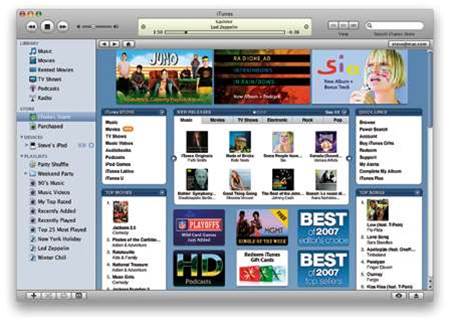
The move would be great for consumers, but of unclear benefit to Apple beyond catching up with the market. Apple benefits from the DRM lock-in, where buyers of songs from the iTunes store can only play those songs back within iTunes or on iPods - thus ensuring the vitality of Steve Jobs' walled garden. Selling songs without DRM will allow users to move outside the confines of the Apple bubble.
However, the company has had its hand forced, to a degree, by competitors who have embraced DRM-less music as a way of competing with Apple. Last week, Amazon launched its MP3 store with great fanfare, offering DRM-free versions of top ten albums. Despite the fact most users will never actually move out of the Apple world, Amazon managed to create a point of difference on the basis that its music was more free and open than Apple's.
From the point of view of the labels, encouraging anybody and everybody to compete with Apple on the music sales front has been their modus operandi for the past year, as the Cappuccino boys swiftly move to dominance - and closer to a dangerous near-monopoly on cheap and cheerful music downloads. However, it seems DRM-free music - easily copyable and piracy prone - might be the price the industry will have to pay for breaking the Apple stranglehold.
Will today be DRM emancipation day for millions of iTunes customers? Only the passing of the hours will reveal all.



_(28).jpg&h=140&w=231&c=1&s=0)
.png&h=140&w=231&c=1&s=0)





 iTnews Benchmark Awards 2026
iTnews Benchmark Awards 2026
 iTnews Executive Retreat - Security Leaders Edition
iTnews Executive Retreat - Security Leaders Edition
 iTnews Cloud Covered Breakfast Summit
iTnews Cloud Covered Breakfast Summit
 The 2026 iAwards
The 2026 iAwards












_(1).jpg&h=140&w=231&c=1&s=0)



